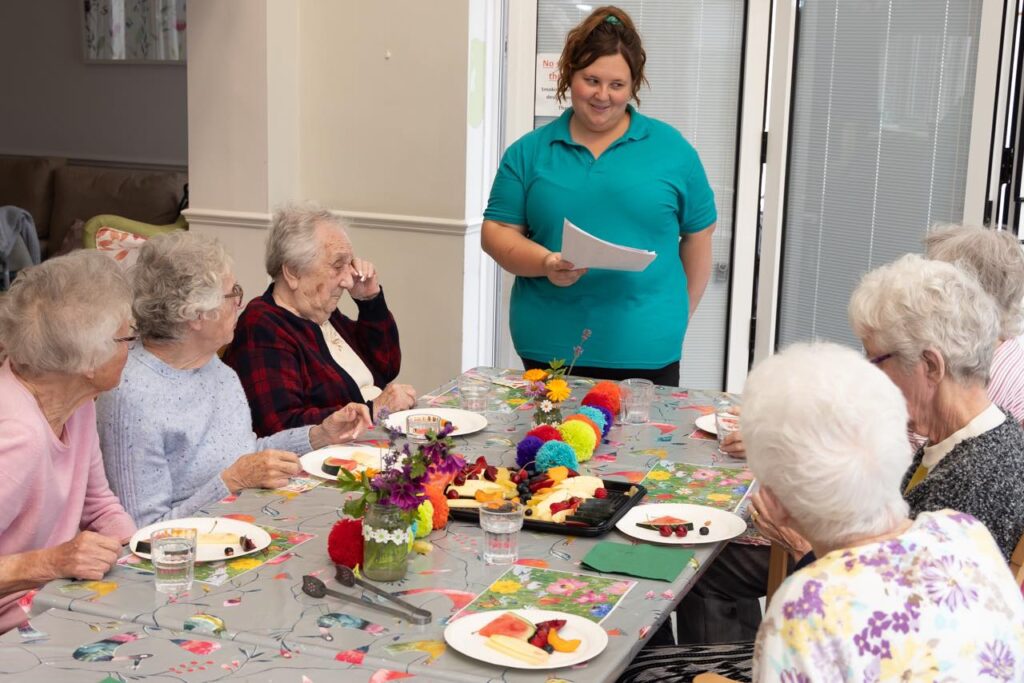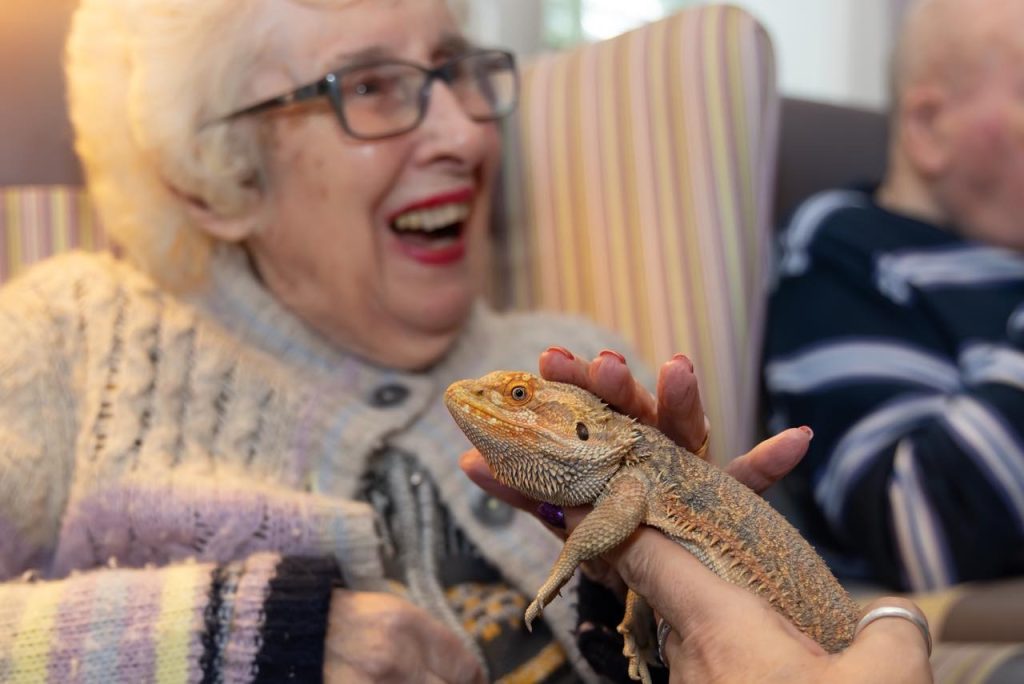
Making sure mental health is catered for within care plans for the elderly is critical in a care home. Giving attention to the well-being of residents will not only help them to live a more fulfilling life, but it may also contribute to living longer and happier. For that reason, it is important that developing a care plan incorporates strategies on well-being.
Mental health is important throughout our lives, including as we get older. Although dementia is mentioned very often and is usually considered the main mental health issue, anxiety and depression may become a challenge among the older generation too.
Here are some of the latest insights into mental health in the elderly from various studies:
- Depression affects around 22% of men and 28% of women aged 65 years and over (Metal Health Foundation)
- 1 in 4 older people live with common mental health conditions (Age UK)
- Loneliness and social isolation are key risk factors for mental health conditions in later life (World Health Organisation, WHO)
With all that being said, it’s important that we properly care for our residents to ensure that they are receiving the best possible care. Within this article, we’ll talk about how you can spot signs and strategies to enhance the mental well-being of your elderly care home residents.
Strategies to Enhance Mental Health in Elderly Care Homes
There is a wide range of strategies and techniques that care homes can implement to improve residents’ quality of life and mental well-being. Here are a few of the suggestions that we have implemented to improve the well-being of our visitors and residents at Friary Care.
Learning to Spot the Signs
It can be challenging to recognise if a resident is struggling with their mental health, but there are key signs to watch for that may indicate they need additional support. Identifying these signs early can ensure that your residents are receiving the best support possible.
Much of the time, by simply listening to residents and their needs, your support staff could help better detect the warning signs of a resident who is struggling with their mental health. Other times, one of the following could be a good indication that your resident is facing challenges with their mental well-being.
- They’re becoming distant or withdrawing
- Showing signs of decreased sleep or not sleeping at all
- Loss of appetite or not eating at all
- Expression of feeling guilty
If you notice any of these signs, it’s important to take a holistic, person-centred approach. Start by having a conversation with the resident to understand what they’re experiencing. Offering reassurance and comfort might be just what they need to help improve their mindset.
Introduce Exciting and Meaningful Activities

One of the most effective ways to promote mental well-being is to organise a variety of meaningful and engaging activities for your care home residents and visitors. When developing an activity plan, be sure to include a diverse range of activities each week to accommodate everyone’s needs, preferences and abilities.
Here are a few popular activities known to boost mental health and well-being in care homes, many of which we implement ourselves! Many of our suggestions include physical activities as this can help promote the overall health and well-being of your residents:
- Art and craft workshops
- Animal-assisted therapy
- Music classes
- Exercise classes
- Bingo
- Gardening
- Group meditation
- Quizzes
- Cooking and bake sales
Implement Social Activities
Isolation and loneliness can greatly impact mental well-being, even in a care home environment where residents are surrounded by others. Many may still feel alone, which can affect their outlook on life. However, there are many ways to enhance their social interactions and day-to-day experiences.
Incorporating a variety of activities in your care home can offer the mental stimulation residents need to boost their well-being. Organising these as group or team activities can also address the social aspect that may be missing. Consider planning group activities such as:
- Team quizzes
- Book club
- Board game competitions
- Group sign-a-long
- Create a music group
Providing Access to the Right Healthcare Services
It goes without saying that care homes should provide access to all appropriate healthcare services to ensure both physical and mental well-being for its residents. Especially when it comes to concerns over illnesses, conditions or diseases. However, there are other healthcare factors to consider that may be affecting your patient’s well-being. Common issues like hearing and eyesight troubles can knock down a person’s confidence, therefore affecting their overall well-being.
Regular check-ups for things like these can provide the proper attention your residents need, therefore helping to maintain their confidence and independence.
Be Present and Available to Residents
Sometimes, the most valuable support you can offer your residents is simply being there for them. Many people just need someone to talk to or someone who will listen to their concerns. Being present and attentive can make a significant difference in improving their mental well-being.
Final Thoughts
Our dedicated team at Friary Care plan meaningful activities for our visitors and residents and puts both mental and physical health as a top priority. Our team strives to go the extra mile to ensure everyone’s needs are catered for to ensure the best quality of life. This is why we plan regular exciting activities, such as the Health & Wellbeing Club and Baking Club.
We also plan daily activities to suit a wide range of hobbies and preferences among our residents, including puzzles, arts and crafts and gardening. And if they have an idea in mind for other activities, we’re all ears!
We have also trained our staff in spotting early signs of someone facing challenges and knowing ways they can help prevent, manage and overcome mental health struggles among our elderly residents.
If you would like to hear more information about what we offer for our residents and visitors at Friary Care, please get in touch. Give Peter a call on 01305 78 78 11 to learn more.
Posted on




